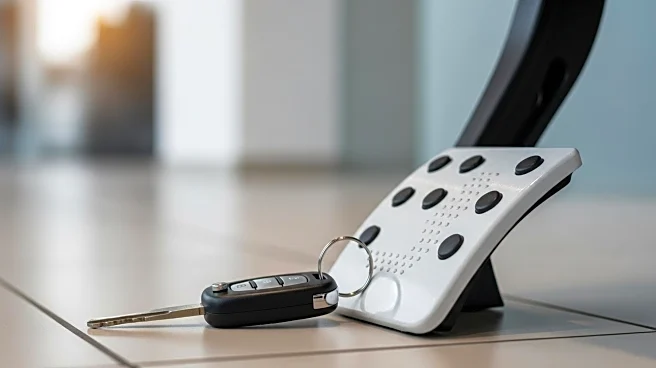What is the story about?
What's Happening?
A recent incident at a Toyota dealership has sparked debate over responsibility for vehicle damage during a test drive. A customer test driving a 2022 Toyota Corolla with 44,000 miles reported a burning smell and difficulty shifting gears, leading to the car being towed back to the dealership. The car salesman, Omar, confirmed the clutch was completely burned. The situation has raised questions about whether the dealership or the customer should bear the repair costs. Omar believes the dealership should cover the expenses, considering it a business cost. The incident has garnered significant attention online, with many commenters supporting the view that the dealership is responsible.
Why It's Important?
This situation highlights the complexities of liability in automotive sales, particularly during test drives. It underscores the importance of clear policies and agreements between dealerships and customers to prevent disputes. The incident could influence dealership practices nationwide, prompting them to reassess their test drive protocols and liability coverage. For consumers, it serves as a reminder to be aware of potential issues when test driving vehicles and to ensure they understand the terms of liability. The broader impact may lead to changes in industry standards, affecting both dealerships and customers in the U.S. automotive market.
What's Next?
The dealership may need to address the issue by reviewing its test drive policies and possibly implementing stricter guidelines or accompanying customers during test drives to prevent similar incidents. This could lead to increased operational costs but may protect against future liability disputes. Additionally, the dealership might consider offering compensation or repair services to the affected customer to maintain goodwill. Industry-wide, other dealerships might follow suit, revising their policies to avoid similar situations.
Beyond the Headlines
The incident raises ethical questions about consumer protection and business accountability. It challenges the notion of fairness in business transactions and highlights the need for transparency in dealership operations. Long-term, this could lead to a shift in consumer expectations, demanding more accountability from businesses. It also touches on the cultural aspect of trust between consumers and businesses, potentially influencing how dealerships build relationships with their customers.















